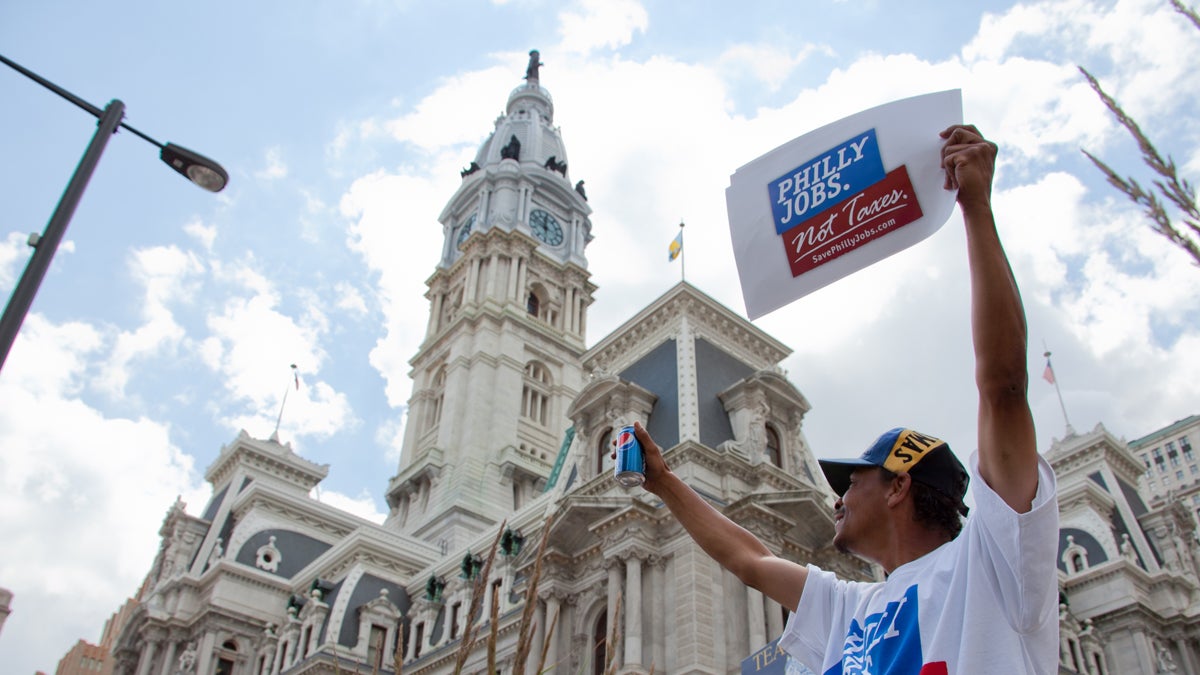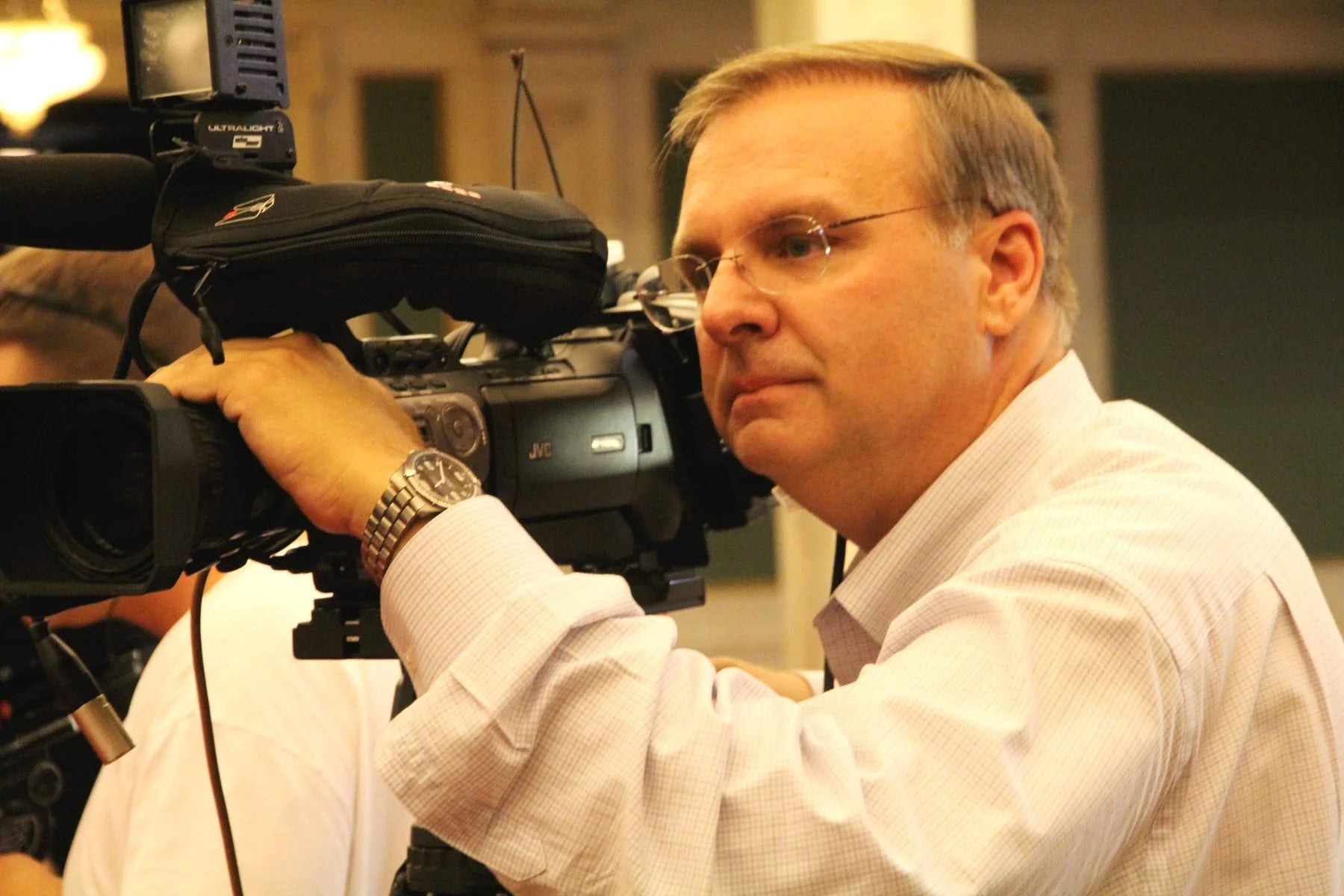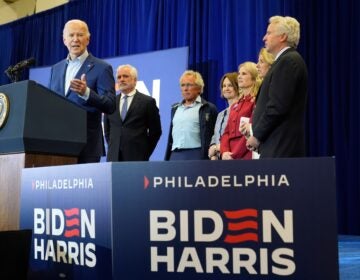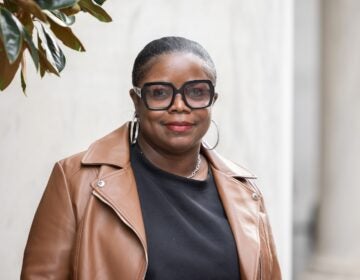Pa. Supreme Court upholds Philly’s soda tax
Coalition representing soda distributors and stores selling soda continues calling on elected officials to repeal the tax.
Listen 2:03
A soda tax protester outside Philadelphia City Hall (WHYY, file)
The city of Philadelphia has scored a major legal win as the Pennsylvania Supreme Court rejected a challenge to the city’s tax on sweetened beverages by merchants and the beverage industry.
The court ruled the 1.5-cents-per-ounce levy is aimed at distributors and dealer-level transactions — and does not illegally duplicate another existing tax.
The four-justice majority said the state taxes sales at the retail level, a cost that falls directly on consumers, but the beverage tax applies to distributor and dealer-level transactions.
“The payer of the beverage tax is the distributor, or in certain circumstances, dealers, but never the purchasing consumer,” wrote Chief Justice Thomas Saylor for the majority.
Philadelphia’s enactment of the soda tax has inspired several other cities around the country to pass similar measures.
Because there is already a sales tax on soda, this is double taxation, insisted Anthony Campisi of the Ax the Beverage Tax coalition representing retailers and consumers.
“We’re clearly disappointed that the Pennsylvania Supreme Court ruled against local businesses and customers by upholding Philadelphia’s wildly unpopular beverage tax,” he said Wednesday following announcement of the court’s decision. “Sixty percent of Philadelphia voters oppose this tax. The tax has cost the city nearly 1,200 jobs and raised the cost for consumers.”
City officials never doubted they would prevail, said Mike Dunn, a spokesman for Mayor Jim Kenney.
“We had maintained all along that City Council had the proper and legal authority to impose the tax, which results in funding for pre-K community schools and a rebuilding of parks, recreational centers and libraries,” Dunn said.
“The justices have agreed, and, to our knowledge, this battle is finally over.”
Dunn may be partially right; Campisi said the court fight is over, but not the war to end the tax.
Now that the court has sided with the city, the issue moves back into the residents’ court, he said.
“It’s up to our elected officials to listen to the concerns of their constituents and provide Philadelphians relief by getting rid of this regressive tax,” he said Wednesday.
The tax adds 17 cents to the cost of a 12-ounce can of any sweetened drink. Because the city was waiting for the legal case to run its course, the city’s pre-K offerings won’t expand any further with soda tax revenue until the fall of 2019.
The ruling allows Philadelphia to expand two education initiatives that had been on hold while the court deliberated. Neither, however, will expand immediately.
Philadelphia’s municipal pre-K program will grow from 2,000 seats to 3,000 seats during the 2019-20 school year, officials said. By 2022-2023, the city plans to have 5,500 free slots available.
The community schools initiative — which currently involves 12 schools — will add two schools a year starting in 2019-20. The plan is to have 20 schools operating according to the model in fiscal year 2023.
Both expansion plans are more modest than what city officials originally trumpeted. In a plan promulgated two years ago, Kenney promised 6,500 pre-K slots over the course of just three years and a total of 25 community schools.
In its first year, the tax brought in just 85 percent of anticipated revenue — or $79 million — and officials have pared back plans accordingly.
The city has also lost significant time while waiting for the Supreme Court’s final call. It’s already been almost two years since Philadelphia added new pre-K seats.
WHYY is your source for fact-based, in-depth journalism and information. As a nonprofit organization, we rely on financial support from readers like you. Please give today.





